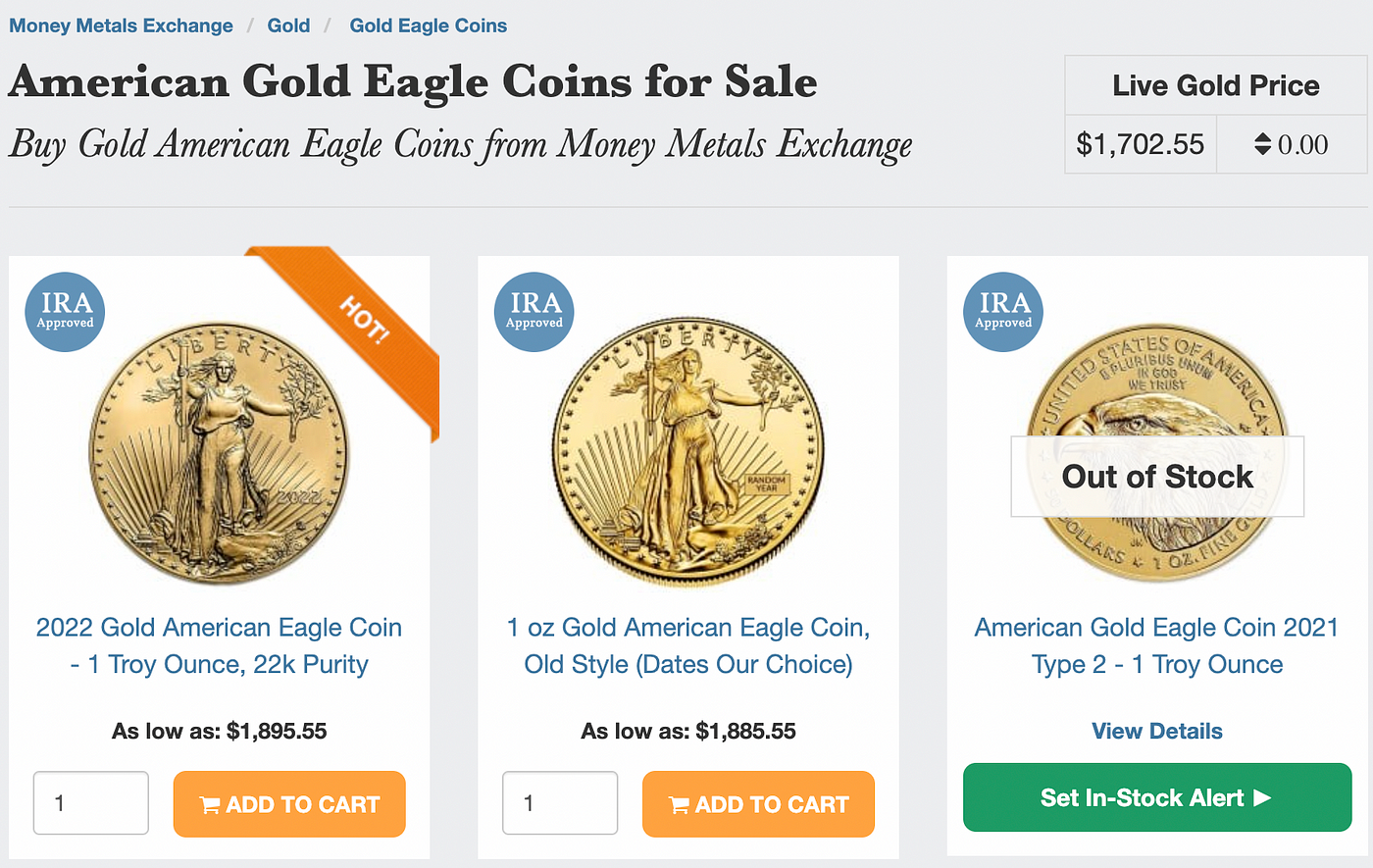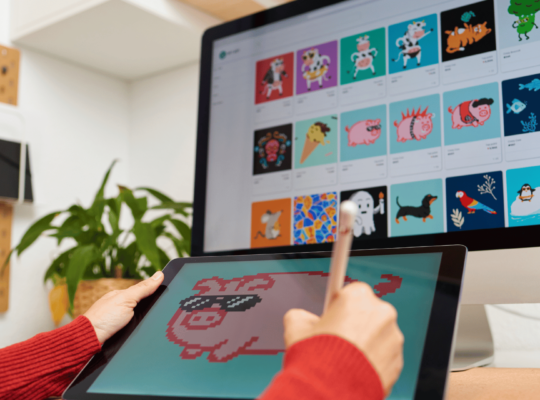I’m not sure exactly why but Asset Tokenization is one of the topics that I find especially interesting, and I presented on the topic at an ETH Vancouver meetup as well as to some PhD Researchers at the University of West Sydney.
What is Tokenization? It’s the representation of real-world assets on a blockchain.
In my personal life, the example of tokenizing gold is one that I use commonly as a very simple use-case for friends and family to see how blockchain is solving real-world problems. I initially had meant to write this as a general overview of Tokenization but I think that gold warrants its own post.
Major Issues in Buying Gold
Inflation is over 8% in the U.S., and the USD is one of the strongest currencies in the world. Countless other worldwide countries have much worse currencies, such as Argentina where it’s expected to hit 70% soon.
Gold has been valued throughout human history as is a popular hedge against inflation due to its limited scarcity, extraction difficulty, beauty, malleable properties, and general agreement as to it being valuable.
That being said, significant issues exist in purchasing it which I’ll review prior to explaining how tokenization of gold would work in practice.
Greater Security
Gold can be stolen in shipment or from one’s place of safekeeping. Just a few weeks ago a story came out of police being involved in the theft of $400M of gold.
Digital gold uses blockchain security to safely purchase it from one’s home.
Intermediary Costs
Usually ~5% but it’s many times higher as well. I’ll demonstrate below, starting off by showing Bullion Vault’s gold price of $1,695 on October 7th, 2022.

From MoneyMetals.com, their gold price is $1,702 per Oz and yet they charge $1,855 per 1 Oz coin, an upcharge of nearly 10%.

Greater Liquidity
Buying and selling physical gold incurs liquidity issues for reasons such as restricting purchasing to geographical regions.
Purchasing gold-tokens enables global liquidity for more efficient markets.
Near Instantaneous
Anyone, anywhere, can instantaneously invest in gold through the blockchain. They’d generally be required to pass KYC which could be an issue for some users, but in the future it’s hoped that blockchain will help establish identities and banking information.
Right now, buying physical gold takes 3–10 days to ship.
Fractionalization
Physical gold generally only be purchased in significant values such as 1/4 Oz which is out of reach for many users globally who could benefit the most from investing in gold. Through gold-backed tokens, they would be able to invest in any fraction of their desire while incurring minimal fees (unless using Ethereum….).
Gold ETF’s
Other solutions exist such as a gold ETF which are good enough for many investors, despite the 0.4% — 0.8% expense ratios and trade fees that are usually less than 10$.
There are also some other challenges such as not enabling fractionalization to the same extent as blockchain technologies, thereby forcing users to purchase minimum amounts of it.
The bigger issue is that they are out of reach for billions worldwide, including 1.7 billion unbanked users.
Gold Tokenization In Practice
Gold stablecoins solve the above issues. Worth noting is that these digital “tokens” don’t include “freehold” ownership like where you own the literal asset. It’s comparable to considering that if you were to own 2% of an apartment building, you wouldn’t literally own 2% of the bricks in the building.
Essentially, by locking up a large amount of gold with a regulated institution, one could issue gold-backed tokens digitally that track the value of the underlying gold. Therefore, I know my $50 of gold is worth that value, because the real gold exists and is legally enforceable as my own.
Kitco Gold does this by having the Royal Canadian Mint act as a legal custodian for the gold, in turn enabling Kitco to issue gold-backed tokens that users globally can purchase.
What else can be tokenized?
- Real Estate: smart contracts could distribute cash flow to token holders automatically
- Currencies: I love my stablecoins, and USD-backed stablecoins are just another example of tokenization. This isrepresenting real USD’s on the blockchain as tokens, which you can buy and hold, knowing that real USD’s exist in a regulated bank account acting in a fiduciary capacity.
- Precious Metals: I described gold but this can be done for other metals as well.
- Commodities, Rare Jewelry, Artwork, etc.
- Stocks, Bonds, and other financial assets: these get tricky legally so not much progress is happening (they’re classified as securities tokens).
- Accounts Receivables: It’s already possible to use one’s A/R as a collateral in order to source liquidity, but using blockchain has several advantages such as using smart contracts to ensure contract fulfilment, and greater transparency / traceability.
Conclusion
The global value of gold alone is $12T with many inefficiencies in how it is transacted. Tokenization solves many issues as lets global users buy/sell it both efficiently and at low-cost.
Other areas will benefit from tokenization, many of which I haven’t mentioned. For example, a big benefit of real estate tokenization is having actual proof of your property title and ownership, which sadly is not enforced in many countries at the moment.
P.s. branded stablecoins
I suspect that once regulations become more established in the U.S. and globally, more brands will launch their own stablecoins for their brands. Imagine if you could purchase Amazon Stablecoins (which are e-gift cards in a sense). Benefits to Amazon could include avoiding payment processing fees (massive!) and receiving secondary market transaction fees (Token holders could sell to a global liquidity market, and Amazon could take a small but significant fee for all transactions). Starbucks would definitely think of clever marketing ploys on their App.


